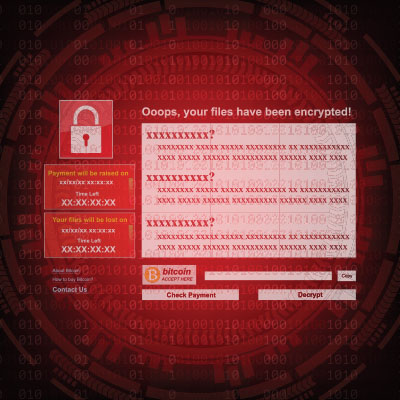Artificial Intelligence (AI) is everywhere it seems. At this juncture, AI proves invaluable in optimizing business operations and processes, but the applications of the technology are far more advanced than just building added efficiency. Let’s briefly go into five ways AI can enhance business efficiency and foster optimal performance.
AI might feel like a technology perfectly at home in the world of science fiction, but the truth is that most of its uses are not nearly as interesting or fun. Take, for example, Operation Green Light, an initiative from Google that aims to better society through examining AI for traffic control and its impact on the environment.
Ransomware is a real problem; I mean, a real problem. Not only does it create serious problems for any organization that is victimized by it, it is about to be a completely pervasive problem for everyone. It is extremely important for your organization to take the threat of ransomware seriously by implementing a strategy to keep it from being an issue. Today, we offer a three-pronged approach to doing just that.
The Internet allows online transactions to take place, but they must be properly protected so that hackers and cybercriminals don’t make off with your sensitive data. Here are some simple ways you can ensure that your business is protecting its online transactions.
Deciding to upgrade your Point of Sale (POS) system isn’t always a choice businesses willingly make, often due to the challenges faced during the initial implementation and the subsequent learning curve for employees. However, like any other business computer, regular updates are crucial for ensuring optimal efficiency in handling customer demand.
It’s easy to think of email as something that just works. You open up Outlook or log into Gmail and your mail is there. Most people aren’t even aware of the vast, complex set of systems required for email to even work—and we don’t blame you. It’s extremely complicated. That being said, if nobody is actively managing your email, providing protection for the underlying technology, and making sure that it was and remains configured properly, it’s possible that your email could be working fine while opening you up for unseen threats.
Cybercriminals aren’t looking to play fair against businesses. They don’t care how big or small you are, they don’t care about what services you provide, or what good you offer for the community. You could be a children’s hospital or a single mother selling homemade mittens out of your dining room, you could be a school, an assisted living facility, or a Fortune 500. Either way, your organization is an equally viable target for cybercriminals.
Technology is constantly evolving and shaping the way we do business. From artificial intelligence to virtual reality, these advancements have the potential to revolutionize industries and drive success. However, not all technologies are met with open arms. In fact, some technologies are met with controversy and skepticism. In this article, we will explore some of the most controversial business technologies and the impact they have on the market.
Technological innovation can be exciting, but one topic that is decidedly unsexy with technology is data backup—at least, from an excitement point of view. More businesses are demanding greater data security and redundancy, which is in turn forcing developers to innovate and create better products that can give consumers and enterprises what they need. Let’s look at three of the more interesting features of these up-and-coming data backup solutions.
Many years ago, the practice of repairing office equipment or household appliances that malfunctioned was a common and practical solution. However, over time, changes in business practices have largely eliminated this option. In recent years, the Right to Repair movement has emerged as a legitimate campaign aimed at advocating for legal protections to safeguard the rights of the modern tech-dependent public.
- 1
- 2










